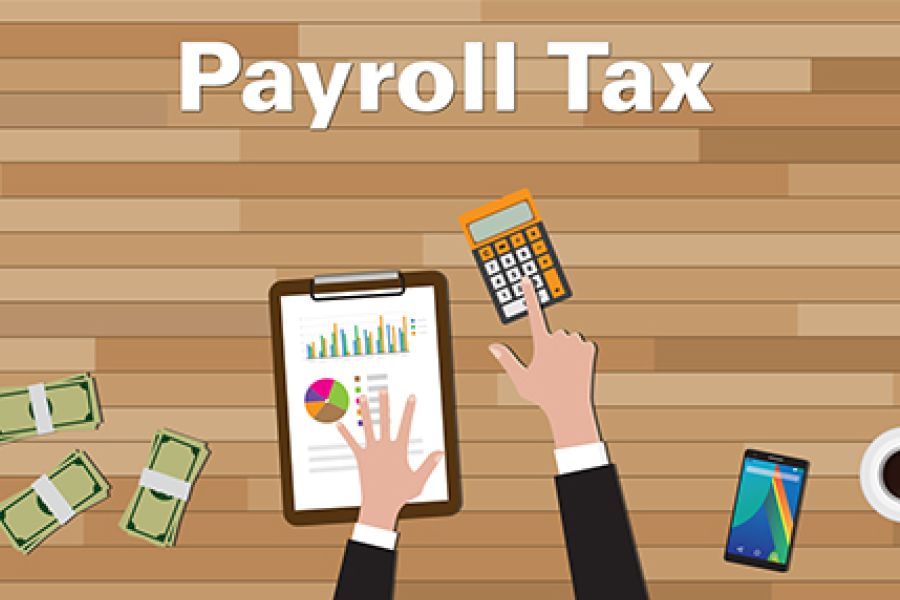Once upon a time, some parents and grandparents would attempt to save tax by putting investments in the names of their young children or grandchildren in lower income tax brackets. To discourage such strategies, Congress created the “kiddie” tax back in 1986. Since then, this tax has gradually become more far-reaching. Now, under the Tax Cuts and Jobs Act (TCJA), the kiddie tax has become more dangerous than ever. A short history Years ago, the kiddie tax applied only to children under age 14 — which still provided families with ample opportunity to enjoy significant tax savings from income shifting. In 2006, the tax was expanded to children under age 18. And since 2008, the kiddie tax has generally applied to children under age 19 and to...

Meal, vehicle and travel expenses are common deductions for businesses. But if you don’t properly document these expenses, you could find your deductions denied by the IRS. A critical requirement Subject to various rules and limits, business meal (generally 50%), vehicle and travel expenses may be deductible, whether you pay for the expenses directly or reimburse employees for them. Deductibility depends on a variety of factors, but generally the expenses must be “ordinary and necessary” and directly related to the business. Proper documentation, however, is one of the most critical requirements. And all too often, when the IRS scrutinizes these deductions, taxpayers don’t have the necessary documentation. What you need to do Following some simple steps can help ensure you have documentation that will pass muster with the IRS: Keep receipts...
With its many changes to individual tax rates, brackets and breaks, the Tax Cuts and Jobs Act (TCJA) means taxpayers need to revisit their tax planning strategies. Certain strategies that were once tried-and-true will no longer save or defer tax. But there are some that will hold up for many taxpayers. And they’ll be more effective if you begin implementing them this summer, rather than waiting until year end. Take a look at these three ideas, and contact us to discuss what midyear strategies make sense for you. Look at your bracket Under the TCJA, the top income tax rate is now 37% (down from 39.6%) for taxpayers with taxable income over $500,000 (single and head-of-household filers) or $600,000 (married couples filing jointly). These...
The Tax Cuts and Jobs Act (TCJA) ushered in significant changes to familiar business expenses . . . expenditures for meals and entertainment. This Tax Planning Letter, as well as Part 1 (#356), seeks to demonstrate that, while the deductibility of many entertainment expenses have been terminated after 2017, some do remain. A number of meal expenses also evade the clampdown. Part 2 covers: the rules for the deduction of employer-provided employee meals on company premises, and genres of expenses exempt from statutory restrictions on meals and entertainment See Part 1 (#356) for an overview of TCJA changes and a discussion of whether a so-called ''business meal'' (one in which a substantial and bona fide business discussion is present during the event) continues to be deductible...
The Tax Cuts and Jobs Act (TCJA) provides a valuable new tax break to non-corporate owners of pass-through entities: a deduction for a portion of qualified business income (QBI). The deduction generally applies to income from sole proprietorships, partnerships, S corporations and, typically, limited liability companies (LLCs). It can equal as much as 20% of QBI. But once taxable income exceeds $315,000 for married couples filing jointly or $157,500 for other filers, a wage limit begins to phase in. Full vs. partial phase-in When the wage limit is fully phased in, at $415,000 for joint filers and $207,500 for other filers, the QBI deduction generally can’t exceed the greater of the owner’s share of: 50% of the amount of W-2 wages paid to employees during the tax...
Because donations to charity of cash or property generally are tax deductible (if you itemize), it only seems logical that the donation of something even more valuable to you — your time — would also be deductible. Unfortunately, that’s not the case. Donations of time or services aren’t deductible. It doesn’t matter if it’s simple administrative work, such as checking in attendees at a fundraising event, or if it’s work requiring significant experience and expertise that would be much more costly to the charity if it had to pay for it, such as skilled carpentry or legal counsel. However, you potentially can deduct out-of-pocket costs associated with your volunteer work. The basic rules As with any charitable donation, for you to be able to deduct your volunteer expenses, the...
The Tax Cuts and Jobs Act (TCJA) ushered in significant changes to familiar business expenses . . . expenditures for meals and entertainment. This Tax Planning Letter, as well as next month’s Part 2, seeks to demonstrate that, while the deductibility of many entertainment expenses have been terminated after 2017, some do remain. Likewise, while some meal expenses are also spared non-deductbility, questions linger as to the deductibility of the most familiar type of meal expense . . . that being the so-called "business meals" during which a meaningful and authentic discussion of business is present during the meal. Part 1 provides an overview of the changes brought about by TCJA and analyzes whether a "business meal" can continue to be deducted under TCJA. Part 2...
For small businesses, managing payroll can be one of the most arduous tasks. Adding to the burden earlier this year was adjusting income tax withholding based on the new tables issued by the IRS. (Those tables account for changes under the Tax Cuts and Jobs Act.) But it’s crucial not only to withhold the appropriate taxes — including both income tax and employment taxes — but also to remit them on time to the federal government. If you don’t, you, personally, could face harsh penalties. This is true even if your business is an entity that normally shields owners from personal liability, such as a corporation or limited liability company. The 100% penalty Employers must withhold federal income and employment taxes (such as Social Security) as well as...
“Going green” at home — whether it’s your principal residence or a second home — can reduce your tax bill in addition to your energy bill, all while helping the environment, too. The catch is that, to reap all three benefits, you need to buy and install certain types of renewable energy equipment in the home. Invest in green and save green For 2018 and 2019, you may be eligible for a tax credit of 30% of expenditures (including costs for site preparation, assembly, installation, piping, and wiring) for installing the following types of renewable energy equipment: Qualified solar electricity generating equipment and solar water heating equipment, Qualified wind energy equipment, Qualified geothermal heat pump equipment, and Qualified fuel cell electricity generating equipment (limited to $500 for...











